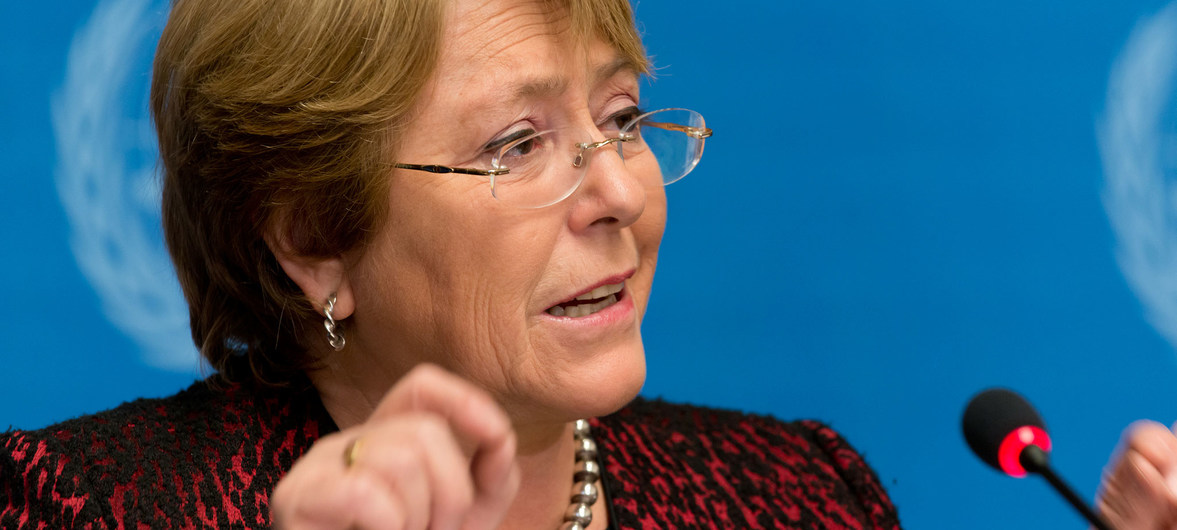
The UN High Commissioner for Human Rights expressed her “regret” at the Sri Lankan government’s announcementof officially withdrawing co-sponsorship of a resolution and called on the Human Rights Council to “to remain alert to this situation in terms of prevention and to explore all possible avenues for advancing accountability”.
In her oral update address to the Council in Geneva this morning, Michelle Bachelet said she was “not convinced the appointment of yet another Commission of Inquiry” would amount to any accountability for rights violations, as in Sri Lanka "domestic processes have consistently failed to deliver accountability in the past".
The High Commissioner was responding to Sri Lankan foreign minister Dinesh Gunawardena, who told the Council yesterday that the UN resolution on accountability was “a blot on the sovereignty and dignity of Sri Lanka” and instead of any internationalised mechanisms, yet another domestic Commission of Inquiry would be appointed.
“I regret that the new Government has announced a very different approach to the commitments previously made in the resolution which risks setting back efforts to advance reconciliation, accountability and human rights,” Bachelet told the Council.
“The fundamental problem remains that Sri Lanka has still not addressed impunity for past violations, nor undertaken the security sector reforms needed to address their drivers and enablers. Systemic barriers that continue to exist within the criminal justice system remain an impediment to real justice. Domestic processes have consistently failed to deliver accountability in the past and I am not convinced the appointment of yet another Commission of Inquiry will advance this agenda. As a result, victims remain denied justice and Sri Lankans from all communities have no guarantee that past patterns of human rights violations will not recur.”
“I urge the Council to remain alert to this situation in terms of prevention and to explore all possible avenues for advancing accountability.”
Bachelet also said she was “troubled by the recent trend towards moving civilian functions under the Ministry of Defence or retired military officers, and renewed reports of surveillance and harassment of human rights defenders, journalists and victims”.
“The increasing levels of hate speech, and security and policy measures appear to be discriminately and disproportionately directed against minorities, both Tamil and Muslim,” the High Commissioner added.
See the full text of her statement here.
Bachelet’s acknowledgement that domestic mechanisms have failed, comes amidst repeated Tamil calls for an international accountability mechanism for massacres committed by the Sri Lankan military a decade ago. Tens of thousands of Tamil civilians were slaughtered in an offensive that saw hospitals shelled and surrendering Tamils executed for forcibly disappeared. Tamils in the North-East and around the world have consistently called for an international mechanism in order to ensure justice and accountability.
To date, Sri Lanka has not prosecuted any soldiers for the atrocities of 2009. Instead, leading commanders who over saw the offensive have been promoted to senior military and government posts, including the current head of Sri Lanka’s army and the defence secretary.
The current Sri Lankan government, as well as those before it, have repeatedly vowed to protect Sri Lankan troops from prosecution.
